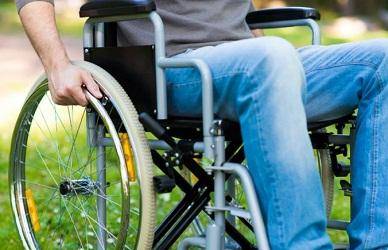Stem Cell Transplant Enabled This Wheelchair-bound MS Patient To Walk Again

 Stem Cell Transplant Enabled This Wheelchair-bound MS Patient To Walk Again
Stem Cell Transplant Enabled This Wheelchair-bound MS Patient To Walk Again
A small, preliminary study in JAMA has found that hematopoetic stem cell transplant (HSCT) may be more effective than disease modifying drugs in patients with highly active relapsing-remitting multiple sclerosis (MS).1 The study is the first randomized trial of HSCT in relapsing-remitting MS. Findings were published online on January 15, 2019 in JAMA.
Roy Palmer, 49, was confined to a wheelchair for several years. He was an MS patient and suffered from multiple sclerosis many years ago due to which he couldn’t walk again. When the radical stem cell treatment emerged, he decided to give it a shot. Palmer went through a hematopoietic stem cell transplant (HSCT) after seeing a documentary about it on a program called Panorama on BBC. He said in an interview, “If they can have that done, on a trial, why can’t I have it done?” HSCT is performed by taking a patient’s own stem cells and destroying the immune system with radiation or chemotherapy. After performing all these steps, hematopoietic stem cells are transplanted back into the body.
The National Multiple Sclerosis Society has listed the treatment as risky and is still in the experimental stages. The procedure is yet to be approved by the Food and Drug Administration. The long-term side effects of the procedure include infections and infertility in both genders. Palmer decided to take the risks as they were worth a shot. He said that two days after the surgery he regained the feeling in both his legs and learned how to walk again. He said, “I’ve been given a second chance at life and I started volunteering at my local police station. We went on holiday not so long ago to Turkey and I walked on the beach. Little things like that, people do not realize what it means to me.”
Multiple sclerosis cripples millions of patients all over the world. It is also known as MS. The disease tricks the body to attack the protective coverings of nerves. This causes extensive damage to the spinal cord and the brain. Often the mobility of patient degrades from walking to vision loss, paralysis, and reduced brain functions. The issue is that the treatment of the disease has not been discovered yet. The Mayo Clinic says, “We went on holiday not so long ago to Turkey and I walked on the beach. Little things like that, people do not realize what it means to me.”

It is currently treated with corticosteroids like oral prednisone or with plasma exchanges if the steroids are not working on the patient. The disease was first highlighted in 2015 when a team from Chicago’s Northwestern Memorial Hospital performed first HSCT for an MS patient. The success of the treatment brought hope into the research for a cure to MS. HSCT is a life-saving treatment as well as cost effective. Most estimates show that MSCT treatments cost around $125,000. The FDA-approved drug for the treatment of MS cost around $5000 per month. MS patients are treated with one or more of those drugs.
The researchers from Northwestern Memorial Hospital has also advised MS patients that MSCT is not for everyone. Dr. Richard Burt explained, “If you’re doing well on first-line therapies, interferons or Copaxone, good, that’s where you should stay. But if you’re having frequent relapses, two or more a year despite those therapies … I think that’s the group that, rather than going to Tysabri or Fingolimod, should be given this therapy because it’s so much more beneficial. Plus, if you wait until you’ve had all those other [DMTs] then you increase the risk of this treatment.”
However, Palmer has huge gratitude for the procedure. In an August opinion piece, raising money for the Imperial Healthy Charity’s Blood Fund he wrote, “It might not be a cure for my MS, but this stem cell transplant has changed my life. I’m now able to walk unaided again. It can still be very painful, so I’m continuing to have physiotherapy to strengthen my legs. Some of the exercises are really hard but I’m hoping it improves.”




